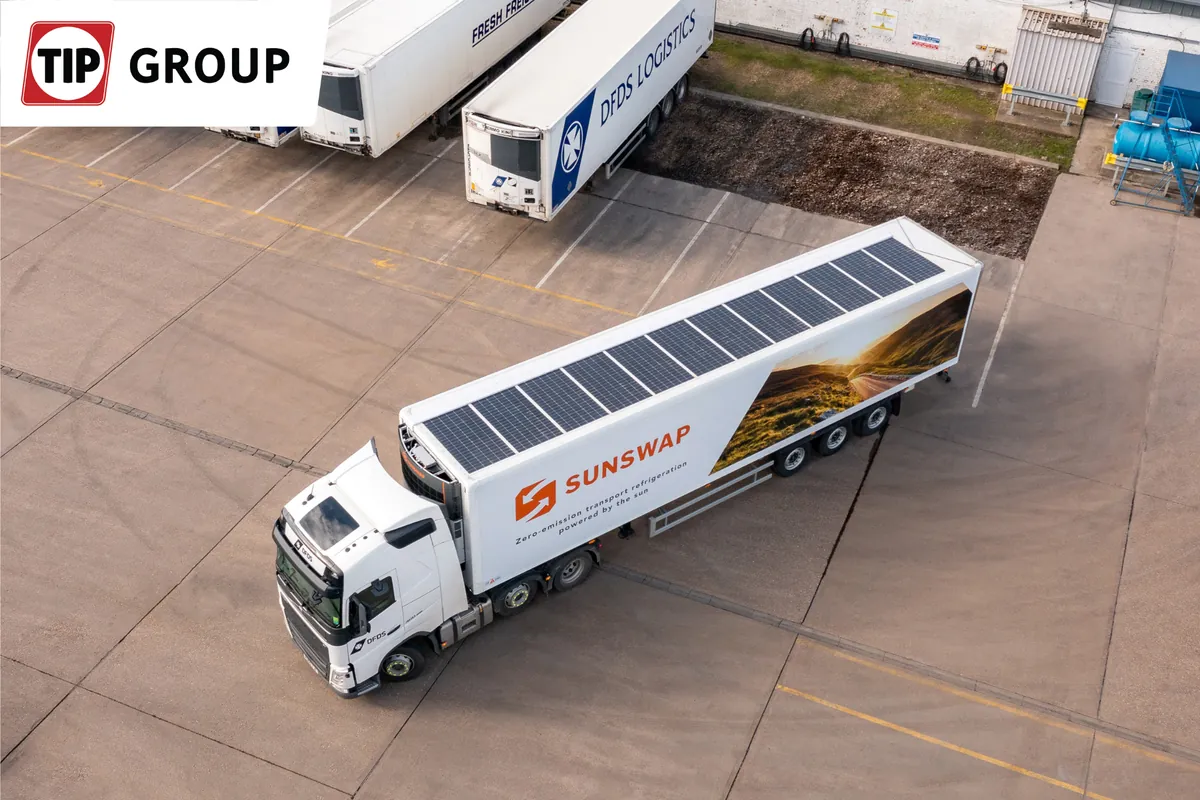Solar-Powered Lorry Refrigeration Startup Secures £17M Investment
Sunswap, a company developing solar-powered refrigeration units for lorries, has received £17 million in funding. The technology aims to replace diesel-powered units, potentially reducing CO2 emissions significantly.

A British startup aiming to revolutionize lorry refrigeration has secured a substantial financial boost. Sunswap, a company developing solar-powered cooling units for haulage vehicles, has received £17 million in investment from various backers, including Shell and the Business Growth Fund (BGF).
The company's innovative technology seeks to replace the estimated 55,000 diesel-powered refrigeration units currently operating on Britain's roads with a more environmentally friendly alternative. These traditional units, used for transporting food and medicine, typically generate around 10 tonnes of CO2 per vehicle, accounting for up to 20% of a lorry's total emissions.
Sunswap's solution involves utilizing solar panels and batteries to power refrigeration units. The company assembles its products in Leatherhead and has already conducted trials with major retailers such as Tesco. While solar panels on cars have been considered insufficient for powering vehicles, lorry trailers provide a much larger surface area, allowing for more effective energy generation.

Mike Lowe, Sunswap's CEO, explained the advantages of their system: "The ratio between solar panels to energy requirement is completely different to a passenger car. Refrigeration and solar panels is also the perfect synergy, because the more the sun is out, the more energy you need for your fridge, but the more you collect from your solar panels."
Interestingly, the concept of using solar energy for transportation is not entirely new. The first solar-powered car was demonstrated by General Motors in 1955, nearly seven decades ago. However, the technology has come a long way since then, with modern commercial solar panels achieving efficiencies of 15% to 22%.
Lowe highlighted the economic benefits of Sunswap's units, stating that they typically pay for themselves within four to six years but have a lifespan of around 10 years. This aligns with the general lifespan of solar panels, which is typically 25-30 years, suggesting potential for long-term cost savings.
The company is experiencing growing interest from customers committed to decarbonizing their fleets. This trend is likely to continue, especially considering that the ban on new diesel lorry sales in the UK is scheduled for 2040, giving hauliers more time to transition compared to passenger vehicles.
Sunswap's technology is expected to remain relevant even as lorries shift to electric power. Their dedicated refrigeration system ensures that cooling doesn't drain the main battery of electric lorries, preserving range.
The startup's journey began in 2020 when Lowe and two colleagues founded Sunswap following the administration of their former employer, engine manufacturer Dearman. Their client base already includes major players like shipping giant DFDS.
This recent funding round was led by BGF, a UK investor established by major banks after the financial crisis. Other backers include Shell's venture arm, Barclays, Dutch venture capital fund Move Energy, and the climate technology investor Clean Growth Fund.
As the world increasingly turns to renewable energy solutions, Sunswap's innovative approach could play a significant role in reducing the carbon footprint of the haulage industry. With solar energy being the most abundant energy source on Earth, continuously delivering 173,000 terawatts to the planet, the potential for growth in this sector is substantial.


































